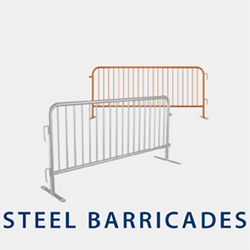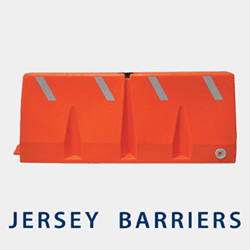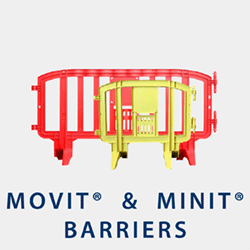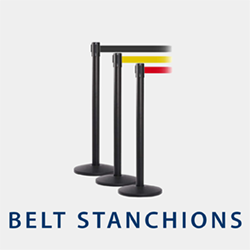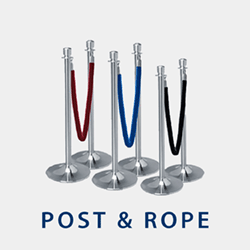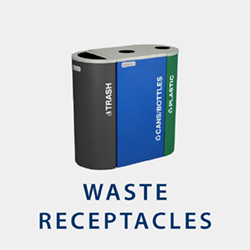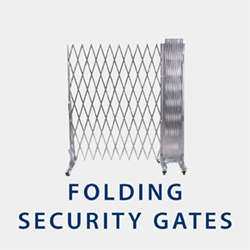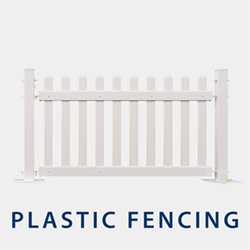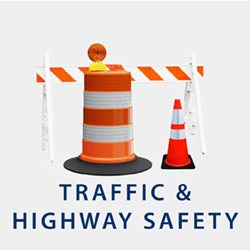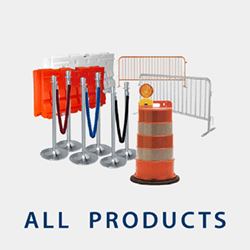Frequently Asked Questions (FAQs)
Have Questions?
Take a look through our FAQs and see if they answer them. If you still require help, please don’t hesitate to contact us here or call 888-270-3636.
What are the major applications and uses of steel barricades?
Steel Barriers are used for crowd control and crowd management in situations ranging from major public events to small parades and festivals. Barriers can designate line space and block off restricted areas at any site. Our steel barriers have many advantages over the competition. Barriers interlock with each other, preventing breaches in a line of steel barriers.
- Foot traffic safety – used to divert the flow of traffic
- Keep an area secure or safe
- Queueing
- Utilize barrier jackets for advertising or direction
Main areas of usage:
- Events – Festivals-sporting events
- Police events – parades, parks, marathon
- Stadiums
- Airports
- Amusement parks
What type of metal barricade do I need?
Discount Directionals offers a metal crowd control barricade to fit any application! Check out our Steel Barrier Buying Guide to compare your options.
What are the different steel barrier base/foot options?
When purchasing barriers, you can choose from four main base styles. These bolt-on replaceable bases enable you to easily replace bases and keep your barriers working.
Bridge Base: The most popular base style, with one large base and one small base per barrier
Flat base: Ideal for when barriers are used as pedestrian railings, where crowds will be walking parallel to barriers
Bridge base: The most popular base style, with one large base ad one small base per barrier
U Base: A rounded variation of the bridge base
Wheel Base: wheels make barriers easy to move
What other color options are available for steel barriers?
In addition to the standard silver color, our Kroma barriers are available in a variety of colors. Painted barriers can match your décor or add a touch of sophistication and class to an event. You can even order additional custom colors for large orders.
Choose from: yellow, black, orange, white, blue, green, and red
What signage is available for my metal barricade?
Discount Directionals offer a variety of options for adding signage to steel barriers, including:
- Aluminum barrier signs
- Laser cut barrier signs
- Barrier decals and stickers
- Barrier jackets and covers
What are the most popular steel barrier fabrication materials?
Steel barricades are crowd control barriers that are commonly used outside. These barricades are manufactured in a variety of styles, and sizes. They also vary radically in quality of metal, workmanship, and finishes which can significantly affect the purchase price.
Common steel barricade fabrication materials:
- Hot dip galvanized steel
- Galvanized plated steel
- Stainless steel
- Aluminum
The best price-to-quality ratio is with hot dip galvanized frames. They are more expensive than plating but significantly less expensive than Aluminum or Stainless.
What steel barrier cart is best to move my barriers?
Steel barrier cats allow you to move your crowd control barricades from storage to the front line – and back – with steel barrier carts.
- Save Time
- Reduce Labor Costs
- Carts will handle all standard models of barriers on the market today
There are two options: Basic Push Cart and Large Portable Cart
- Basic Push Cart holds 8 barricades and can be pushed by hand
- Save time and labor costs when you need to move small quantities of barriers
- Using this cart, one person can push 8 barriers, rather than moving one barrier at a time
- Cart made of heavy-duty, hot dip galvanized steel
- A width of less than 48” allows easy doorway access
- Easy access “T” supports quick loading
- Knocks down easily for long-term storage
- Large Portable Cart holds 28 barricades and can be pulled or lifted (or both) by a forklift
- Ideal for any facility with a large inventory of barriers
- With this cart’s expanded capacity, a forklift can now pull a cart of 28 barriers and lift another 28-barrier cart at the same time.
- Strong, heavy-duty steel; 360 pounds
- Easy to assemble and store
- Hot dip galvanized steel for outside storage
- Designed for improved stability on corners, and when half-loaded
How do I determine which size jersey barrier will work best?
The most popular size plastic jersey barriers are the 42″ x 24″ x 72″ and the 32″ x 18″ x 72″ models, in the orange color. However, they may not best suit your needs. You must consider several factors:
- What are you using the waterwall barriers for? Channeling traffic through a construction area? Setting up a barricade to protect buildings, vehicles, or pedestrians? Denying access to a particular area? Delineating boundaries? Controlling flooding? Do you need greater or lesser overhead visibility? Is the jersey barrier going to be installed in a permanent or temporary location?
- Determine the width. We have different lengths of barriers, which size will be best for the area you need? Not sure? You can talk to our product specialist who can help!
- Next decide on the height. If you want to deny access, the 54″ height would be best; it’s hard for people to climb over. If you’re channeling traffic, you might prefer the shorter 42″ barrier or the 46″ barrier which enables people to see over the barrier. If you want the maximum overhead visibility, the short model may be best.
Our knowledgeable product specialists are happy to ensure you are ordering the right size for your application. They can answer all your questions to help you select the best suited jersey barriers.
Simply call 888-270-3636 Monday through Friday, between 8 am and 6 pm Eastern Standard Time.
Which works better; sand or water filled plastic jersey barriers?
This all depends on the use or application. If you plan to use the barriers more permanently, then we recommend you use sand to reinforce the jersey barriers. For temporary use, fill with water.
How do you prevent plastic jersey barriers from freezing?
The most preferred method during the wintry months is to only fill the water 10” from the top of the jersey barrier. This allows room for expansion as the water freezes.
Another way is to use calcium chloride.
Calcium chloride is an effective deicing chemical that is often used on roads and highways in winter conditions.
Because calcium chloride will readily dissolve in water, even at very low temperatures, it is very effective at lowering the freezing point of water. When temperatures approach the freezing level, to keep water from freezing, it is recommended that roughly 12 pounds (or 1.5 gallons) be added to the water in each water-filled barrier.
Because you fill the barriers with water, won’t water leak out?
Our jersey barriers are rotation-molded to a uniform thickness. This thick plastic is not easily punctured. It is sturdy enough to withstand normal wear and abuse.
Where are plastic jersey barriers used?
Plastic Jersey barriers are a common sight on highways, where they often serve as a median barrier, or as a wall to block off closed lanes. But these water-filled barriers are also used in numerous other settings.
Because they can be set up and moved without the use of heavy equipment, Plastic Jersey barriers are easy to set up around construction sites and temporary work zones. They will protect workers, and keep vehicles and pedestrians physically blocked from no-access zones.
Many airports also use Plastic Jersey barriers to identify closed runways, create taxi lanes, and keep vehicles away from construction zones. A special low-profile barrier model has recently been introduced, to act as a visual border at airports.
Plastic Jersey barriers can also be mobilized to provide security in severe weather conditions (such as hurricanes or floods) and in emergency situations such as security threats where they can block vehicles from trespassing into a site.
Due to their ability to withstand high-speed vehicle impact and prevent automobiles from jumping over them, Plastic Jersey barriers are often also used at speedways and racetracks, especially sites that serve as temporary or non-permanent race tracks.
The 42" x 24" x 72" plastic jersey barrier is available in both a 100 pound and a 170-pound model. What is the difference between them?
The only difference between these jerseys are that the 170-pound model is made of thicker plastic.
How do I unload plastic jersey barriers?
This will depend on the quantity and size of the barriers you order.
Most of the jersey barriers are light enough to be lifted off the truck by one or two people. Even the largest barrier is portable and can often be carrier by two people.
The number of jersey barriers ordered will determine the way they are shipped: loose or on a pallet. For example, two or three barriers would most likely be shipped loose. Larger orders must be banded to pallets. If you have a forklift at your location, you can easily unload each pallet. If you don’t have a forklift, you will need to un-band them, and manually lift them off the pallet one-by-one.
What is the difference between a plastic and concrete jersey barrier?
For long-term projects on major roadways (such as interstate highways or turnpikes), for which miles and miles of barriers are needed, concrete barriers are the most common choice.
However, many small jobs or short-term projects can’t justify the cost of concrete. In these situations, choosing the Plastic Jersey option can result in time and cost savings, because the barriers can be moved with relative ease.
Unlike concrete barriers, Plastic Jersey Barriers are also reusable in several different circumstances. The fact that they can be used for traffic control on roads, as well as in construction zones or water and sewer projects, can enable an entity to reduce their capital expenditures by purchasing Plastic Jersey barriers.
Plastic Jersey barriers are also frequently used at special events for security, as well as at airports and garages, for the purpose of access denial.
What is a retractable belt stanchion?
A retractable belt stanchion is a portable crowd control device that consists of a post with a retractable belt. It is commonly used to manage lines, queues, and crowd flow in various settings, such as airports, museums, banks, and event venues.
Our knowledgeable product specialists are happy to ensure you are ordering the right stanchion for your application. They can answer all your questions to help you select the best suited stanchion, belt type, size color and messaging options.
Simply call 888-270-3636 Monday through Friday, between 8 am and 6 pm Eastern Standard Time or see our product line card.
How does a retractable belt stanchion work?
This all depends on the use or application. If you plan to use the barriers more permanently, then we recommend you use sand to reinforce the jersey barriers. For temporary use, fill with water.
What are the different belt lengths available?
Retractable belt stanchions typically come with belt lengths ranging from 7 to 13 feet. The choice of belt length depends on the specific needs of your crowd control application.
Can I customize the color or design of the belts?
Yes, we offer customizable belts. You can choose from a variety of belt colors and even have your company logo or message printed on the belts for branding purposes. The posts themselves come in multiple color or finish options, too.
Are retractable belt posts easy to set up and move around?
Yes, retractable belt stanchions are designed for easy setup and portability. Most models are lightweight and can be set up or moved by one person without the need for special tools.
What are the safety features of retractable belt stanchions?
Retractable belt stanchions often come with safety features like slow-retracting belts to prevent injury when the belt is released, and locking mechanisms to keep the belt securely in place.
Are there outdoor options available for retractable belt posts?
Yes, there are retractable belt stanchions designed for outdoor use. They are typically made of materials that can withstand various weather conditions, such as stainless steel or powder-coated aluminum.
Can I connect multiple stanchions to create longer barriers?
For long-term projects on major roadways (such as interstate highways or turnpikes), for which miles and miles of barriers are needed, concrete barriers are the most common choice.
However, many small jobs or short-term projects can’t justify the cost of concrete. In these situations, choosing the Plastic Jersey option can result in time and cost savings, because the barriers can be moved with relative ease.
Unlike concrete barriers, Plastic Jersey Barriers are also reusable in several different circumstances. The fact that they can be used for traffic control on roads, as well as in construction zones or water and sewer projects, can enable an entity to reduce their capital expenditures by purchasing Plastic Jersey barriers.
Plastic Jersey barriers are also frequently used at special events for security, as well as at airports and garages, for the purpose of access denial.
Security Gates FAQs
What if I don’t want to drill holes in my floor to mount my single or pair gate?
Do I need to drill holes in the floor for my pair gate’s self-securing drop pin?
Yes. Self-securing drop pins, which must be inserted into floor-holes, are required for pair gates to join properly in the center when closed.
Can I install the “L” bracket up, instead of down?
Should I lubricate the gate?
When do I need an “H” bracket?
Traffic Safety Products FAQs
What Types of Traffic and Highway Safety Products Do You Offer?
We offer a wide range of traffic safety products including traffic cones, reflective signs, road barriers, traffic lights, and more. Our products are designed to enhance the visibility and safety of work zones, construction sites, and other high-traffic areas.
Are Your Traffic and Highway Safety Products Weather-Resistant
Yes, our traffic safety products are made from high-quality materials that are built to last. They are weather-resistant and can withstand the toughest conditions, ensuring reliable performance for many years to come.
Can Your Traffic Safety Products be Customized with a Company Logo or Message?
Yes, we offer custom printing services for many of our traffic safety products, allowing you to add your company logo or a specific message to increase brand awareness and reinforce safety messages.
Are Your Traffic and Highway Safety Products Compliant with Industry Standards?
Yes, all of our traffic safety products are fully compliant with relevant industry standards, such as the Manual on Uniform Traffic Control Devices (MUTCD) and the Federal Highway Administration (FHWA). We ensure that all of our products meet or exceed these standards to provide you with the highest level of quality and safety.
